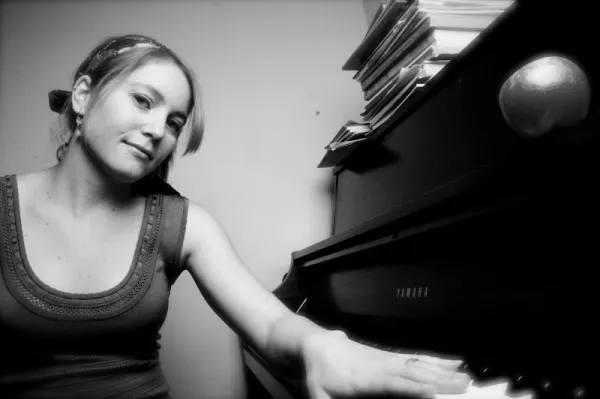3 Key Studio
About
Specialties
Hayley makes it fun as your ear, eyes, and hands are trained in Classical, Jazz, and Popular piano. She uses a mixed method of traditional reading and audio perception so that all students can succeed in their practice.
Hayley is also a Certified Sound Healer, and understands the essence of vibration and frequency on a quantum level. This helps her to relax shy or anxious students, and bring ancient techniques of rhythm and vocal work into the lessons.
History
Established in 2008.
Hayley Shula began teaching piano at a YMCA in Tempe, Arizona. When she got out of work at the after-school program, she would stay with kids and give them informal lessons on the old piano. Eventually she got her own piano, and began teaching out of her home. In 2010, she returned to the Bay Area and continued to teach piano. She traveled to people's homes and taught at the Berkeley Academy of Music for six years. In 2012, she taught at Acme Music while receiving a Certificate in Sound Healing and adding some skills in music therapy to her method. In 2013, she founded "3 Key Studio."
Hayley began playing piano at the age of six in her hometown of Swanville, Maine. From a young age she was drawn to music, singing, and piano. Her training was primarily from private lessons continuing into college. After college she took a two-semester course in advanced music theory. Her degrees in Sociology and Business allow her to maintain positive relations with clients.
Hayley truly enjoys sparking a love for music in others, and especially likes the diversity of her work and how different each student is. A musician herself, Hayley's main goal is to guide students in finding their own musical style.
She is trained in the Suzuki method and also teaches classical methods such as Alfred or Faber.
**She can teach advanced musical theory as well as music production and recording!
Check out her Yelp page here: https://www.yelp.com/biz/3-key-studio-emeryville?osq=3+key+studio
Photos and videos

Reviews
Evie E.
Curtis L.
Carmen
Ed S.
Frequently asked questions
What is your typical process for working with a new student?
The first lesson is free, and we go over the basic keyboard layout, fingering, and rhythmic notation for complete beginners. If you've taken lessons in the past, we go over any materials or repertoire you may have. I also make sure to play an inspirational piece to show students what they could play if they stick with practicing for a year!
What education and/or training do you have that relates to your work?
Suzuki Method
Advanced Music Theory Training
Music Production and Engineering
Certified Sound Healer
BA in Sociology and Business
Piano Studio Founder - 3 Key Studio
Student Participatants in the National Guild Auditions and the Federation of Music Clubs Festival for 9 Years
Do you have a standard pricing system for your lessons? If so, please share the details here.
Monthly payments on the 1st lesson of each month
How did you get started teaching?
I started teaching casually on an old piano at the YMCA afterschool program I was working at. As families became more interested, I took the teaching practice to my home and soon was doing it full time! I fell in love with the dynamic work, with each student having their own unique needs and interests.
What types of students have you worked with?
All ages from 3 to 103! The youngest students usually do rhythm work and a lot of singing and play. The oldest mostly want to play for fun to keep their brain active by building healthy 'dendrites,' improving memory and dexterity.
Describe a recent event you are fond of.
My last piano recital was very entertaining! We got locked out of the church so had to climb back in through a window. We sent in one of the smallest students! I love organizing and hosting piano recitals so that the students can listen to each other's pieces and get inspired. It's also great practice for getting over stage fright.
What advice would you give a student looking to hire a teacher in your area of expertise?
We can always do a free trial lesson first to make sure it's a good fit. The most important thing is the student-teacher relationship, and that the teaching and learning styles align.
What questions should students think through before talking to teachers about their needs?
Ask what style the teacher specializes in. If the teacher only teaches classical and you're more interested in pop, lessons may not be very fun! I've heard of many students losing interest simply because they can't play the songs they want to play, and that's why I allow students to develop their own musical style so that they enjoy playing.